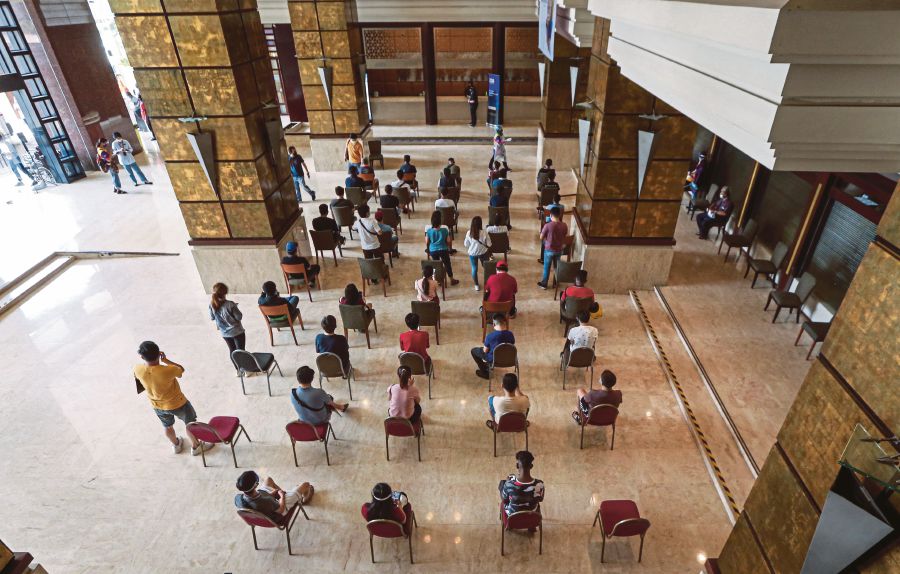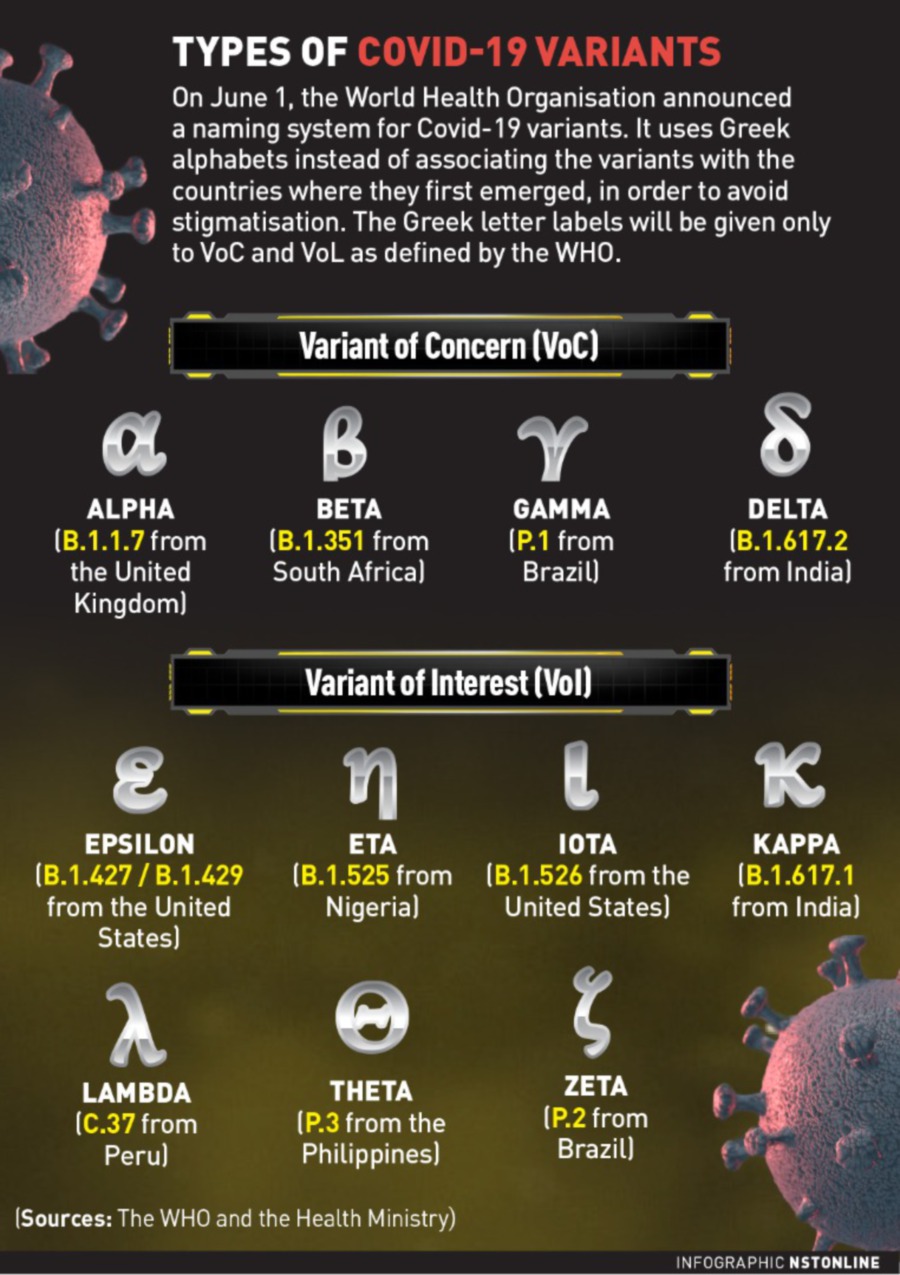
COVID-19 is likely to become endemic for the foreseeable future and people will have to learn to live with it even after being vaccinated.
Experts said amid the accelerated vaccination drive in the country, the government should not be hasty in easing restrictions next month — especially in the Klang Valley — without proving that population immunity had been achieved.
They also questioned the effectiveness of the Sinovac vaccine against Covid-19 and the rampaging Delta variant.
They urged the government to study the possibility of heterologous prime-boost Covid-19 vaccination for those who received Sinovac shots.
Epidemiologist Professor Datuk Dr Awang Bulgiba Awang Mahmud said it had yet to be proven that population immunity (either naturally acquired or through vaccination) would enable people to live with the virus with or without non-pharmaceutical interventions.
"We will probably live in an environment with less severe Covid-19 cases — with vaccines and non-pharmaceutical interventions in place — in the near future.
"Given the speed of medical research, I hope that better treatments and even better vaccines will be made available," he told the New Sunday Times.
The Health Ministry's latest data showed that vaccinated adults who contracted Covid-19 experienced less severe symptoms.
Dr Awang Bulgiba, who is the Science, Technology and Innovation Ministry's Covid-19 Epidemiological Analysis and Strategies Task Force chairman, said people needed to adjust their expectations of a "normal" life with preparations for a long-drawn-out battle with Covid-19.
"The most practical thing to do is to complete vaccination as soon as we can to achieve population-level immunity, while retaining non-pharmaceutical interventions to some degree and relaxing restrictions carefully.
"Keeping our fingers on the pulse of the pandemic is especially crucial and that requires having good data. Having good experts (epidemiologists, behavioural scientists and clinicians) who can advise the authorities is important.
"In Malaysia, there is ample capacity to give advice but there is little capacity to receive good advice. This needs to change."
He cautioned against relaxing virus restrictions by next month amid the spike in fresh infections, as well as high fatality and hospitalisation rates, especially in the Klang Valley.
"August is only two weeks away. There is not enough time to see a real and sustained reduction in the number of new infections as a large number of people in Selangor need to get vaccinated for this to happen.
"There is also not enough time for building owners to ensure that their ventilation systems are functioning well. We should not be too hasty in relaxing restrictions until we are sure that we are on the right track."
He said vaccination alone did not guarantee immunity, especially with the spread of variants of concern (VoC).
The government on Thursday announced that the country would be expected to move into Phase Two of the National Recovery Plan by early next month.
The authorities are also looking at relaxing restrictions for those who are fully vaccinated, including allowing people to travel or dine at restaurants.
The World Health Organisation recently warned of the emergence and global spread of new and possibly more dangerous VoC that may be even more challenging to control.
Dr Awang Bulgiba said new variants would keep evolving as no equilibrium had yet to be established between population immunity and the virus.
He said while VoC could be more transmissible, some of the current vaccines were still effective in preventing them from turning into variants of high consequence.
"However, the potential is there, so we need to be ready for that," he said, acknowledging the possibility that booster shots could be required in the long run.
A study published in The Journal of the American Medical Association on Thursday suggests that immunity developed after getting infected with Covid-19 is long lasting, with a big boost coming from vaccination.
Dr Awang Bulgiba, who is also head of the Independent Covid-19 Vaccination Advisory Committe, said the government should establish a voluntary Covid-19 vaccination registry with 50,000 vaccine recipients recruited as volunteers and followed up for two years.
"As we also have other vaccines (Sinovac and with CanSino, Johnson & Johnson to come) in our portfolio, there is an urgent need for our own studies. CanSino and Johnson & Johnson vaccines are single-dose vaccines, so there is a possibility of getting booster shots."
Virologist Professor Dr Sandy Loh Hwei San from the University of Nottingham Malaysia said the fight between host (humans) and the Covid-19 virus was a continuous one.
"Fully vaccinated people who are reinfected could recover from the illness quickly. So if we continue to adhere to the standard operating procedures, reinfection risks will be minimised and gradually wane off over the years."
Dr Loh suggested the use of the Pfizer-BioNTech or AstraZeneca vaccine as the second dose or booster shot for Sinovac vaccine recipients.
"Viruses are too smart in invading our body defence system, especially RNA viruses like SARS-COV-2 and influenza. They mutate rapidly. We need to adjust the vaccines to prevent them (and new variants) and boost our immunity. We need to have booster shots, like those given for influenza, annually."
She said besides the Delta variant, the Lambda variant declared by the World Health Organisation on Thursday had the potential to dominate the number of Covid-19 cases globally. - NST




No comments:
Post a Comment
Note: Only a member of this blog may post a comment.